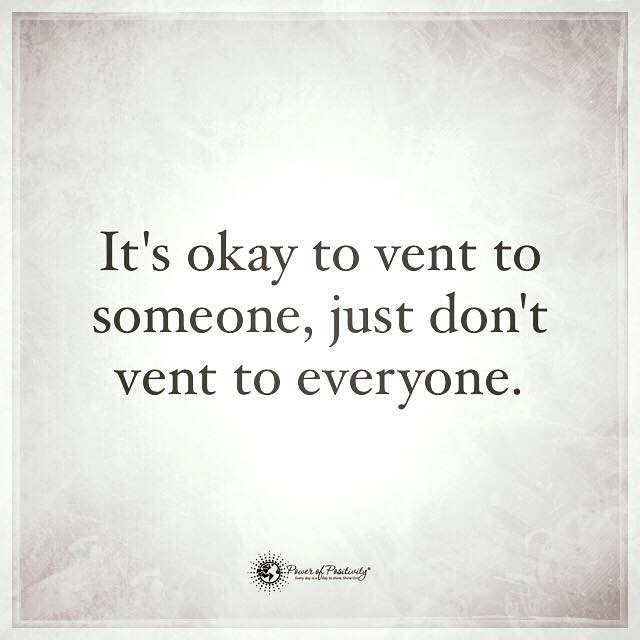Have you ever been in a situation where someone doesn’t give you a straight answer? It can be frustrating, confusing, and even maddening when you’re looking for clarity. Whether it’s in personal relationships, professional environments, or casual conversations, this behavior is more common than you might think. People often avoid giving direct answers for a variety of reasons, and understanding these reasons can help you navigate such situations more effectively.
When someone doesn’t give you a straight answer, it’s not always about being intentionally deceptive. Sometimes, it’s rooted in fear, insecurity, or even cultural differences. By exploring the psychology behind this behavior, you can gain insight into why people act this way and learn how to handle it with grace and understanding.
In this article, we’ll delve deep into the reasons why people avoid giving direct answers, how to interpret their behavior, and strategies for dealing with it. Whether you’re trying to improve communication in your personal life or professional career, this guide will equip you with the tools you need to handle such situations confidently.
Read also:Exploring The Enigma Of Anime Black Pfp Your Ultimate Guide
Table of Contents
- The Psychology Behind Avoiding Straight Answers
- Common Reasons Why People Don’t Give Straight Answers
- The Impact on Communication
- Cultural Differences in Communication
- Understanding Body Language
- Strategies for Getting Straight Answers
- Handling It in Professional Settings
- Dealing with It in Personal Relationships
- Real-Life Examples and Case Studies
- Conclusion: Mastering the Art of Communication
The Psychology Behind Avoiding Straight Answers
Understanding the psychology of why people don’t give straight answers is the first step toward addressing the issue. Research has shown that human behavior is complex, and communication is no exception. People may avoid direct answers for a variety of psychological reasons, such as fear of conflict, lack of confidence, or even an unconscious desire to control the conversation.
In many cases, the avoidance of a direct answer stems from emotional triggers. For example, if someone feels threatened or uncomfortable, they may resort to evasive tactics to protect themselves. Additionally, some individuals may use indirect communication as a way to maintain power or avoid responsibility.
Why People Avoid Direct Communication
Here are some of the most common psychological reasons why people don’t give straight answers:
- Fear of confrontation or conflict.
- Lack of confidence in their own opinions or decisions.
- Desire to avoid offending or hurting someone else.
- Unconscious need for control over the conversation.
Common Reasons Why People Don’t Give Straight Answers
While the psychology behind avoiding straight answers is complex, there are several common reasons why people behave this way. These reasons can vary depending on the context, but they often boil down to basic human emotions and motivations.
Reason #1: Fear of Rejection
One of the most common reasons people avoid giving direct answers is the fear of rejection. If someone feels that their answer might lead to negative consequences, they may choose to remain vague or ambiguous. This fear can manifest in both personal and professional settings, where individuals may worry about being judged or dismissed.
Reason #2: Lack of Confidence
Another reason people don’t give straight answers is a lack of confidence in their own opinions or knowledge. If someone feels uncertain about their ability to provide a correct or satisfactory response, they may choose to avoid giving an answer altogether. This can be especially prevalent in situations where the stakes are high, such as during job interviews or important meetings.
Read also:Discovering Liliwashere A Comprehensive Guide To Understanding And Connecting
The Impact on Communication
When someone doesn’t give you a straight answer, it can have a significant impact on communication. Misunderstandings can arise, trust can erode, and relationships can suffer. In professional settings, unclear communication can lead to inefficiencies, missed deadlines, and even financial losses.
Effective communication is built on trust, clarity, and mutual understanding. When one party avoids giving a direct answer, it can create a barrier that prevents meaningful dialogue. To overcome this challenge, it’s important to address the root cause of the behavior and find ways to encourage more open and honest communication.
Cultural Differences in Communication
Cultural differences can also play a role in why people avoid giving straight answers. In some cultures, indirect communication is seen as a sign of respect or politeness. For example, in many Asian cultures, people may avoid saying "no" directly to avoid causing offense. In contrast, Western cultures often value directness and clarity in communication.
Understanding these cultural differences is essential for effective cross-cultural communication. By being aware of the norms and values of different cultures, you can adjust your communication style to better suit the context and avoid misunderstandings.
Understanding Body Language
In addition to verbal communication, body language can also provide clues about why someone doesn’t give a straight answer. Nonverbal cues such as avoiding eye contact, fidgeting, or crossing arms can indicate discomfort or evasion. By paying attention to these signals, you can gain a deeper understanding of the person’s emotional state and adjust your approach accordingly.
Body language can also be used to encourage more direct communication. For example, maintaining open body posture and making eye contact can create a sense of trust and openness, making the other person more likely to give a straight answer.
Strategies for Getting Straight Answers
If you find yourself in a situation where someone doesn’t give you a straight answer, there are several strategies you can use to encourage more direct communication:
- Ask open-ended questions to give the person more room to express themselves.
- Rephrase your question to make it clearer or more specific.
- Use active listening techniques to show that you’re genuinely interested in their response.
- Provide a safe and non-judgmental environment to reduce their fear of rejection.
How to Handle Evasive Behavior
When someone consistently avoids giving straight answers, it’s important to address the behavior directly but respectfully. You can do this by gently pointing out the pattern and expressing your desire for more open communication. For example, you might say, “I’ve noticed that we sometimes struggle to communicate clearly. I’d love to hear your thoughts on this issue.”
Handling It in Professional Settings
In professional settings, avoiding straight answers can have serious consequences. Miscommunication can lead to missed deadlines, poor decision-making, and damaged relationships. To prevent this, it’s important to establish clear communication guidelines and encourage transparency within your team or organization.
Leaders can play a crucial role in promoting open communication by modeling the behavior they want to see. By being transparent and direct in their own communication, leaders can set the tone for the rest of the team and create a culture of trust and accountability.
Dealing with It in Personal Relationships
In personal relationships, avoiding straight answers can lead to frustration, mistrust, and even conflict. To address this issue, it’s important to approach the situation with empathy and understanding. Try to understand the reasons behind the behavior and work together to find a solution that works for both parties.
Communication is key in any relationship, and being open and honest is essential for building trust. By encouraging more direct communication, you can strengthen your relationship and avoid unnecessary misunderstandings.
Real-Life Examples and Case Studies
To better understand the impact of avoiding straight answers, let’s look at a few real-life examples:
Example #1: The Job Interview
Imagine you’re in a job interview, and the hiring manager asks you about your weaknesses. Instead of giving a direct answer, you respond with a vague statement like, “I’m always looking for ways to improve.” While this may seem like a safe response, it can actually come across as evasive and untrustworthy. A better approach would be to acknowledge a specific weakness and explain how you’re working to overcome it.
Example #2: The Family Conflict
In a family setting, avoiding straight answers can lead to resentment and conflict. For example, if a parent consistently avoids answering their child’s questions about a sensitive topic, the child may feel ignored or dismissed. By addressing the issue directly, the parent can foster a more open and trusting relationship with their child.
Conclusion: Mastering the Art of Communication
In conclusion, understanding why people don’t give straight answers is essential for effective communication. Whether it’s in personal relationships, professional environments, or cross-cultural interactions, the ability to navigate this behavior can make a significant difference in your interactions with others.
To recap, here are the key takeaways from this article:
- People avoid giving straight answers for a variety of psychological reasons, such as fear, insecurity, or cultural differences.
- Effective communication is built on trust, clarity, and mutual understanding.
- Strategies for encouraging direct communication include asking open-ended questions, providing a safe environment, and addressing evasive behavior respectfully.
We invite you to share your thoughts and experiences in the comments section below. Have you encountered situations where someone didn’t give you a straight answer? How did you handle it? By sharing your insights, you can help others learn and grow in their communication skills.
Don’t forget to check out our other articles on communication and interpersonal skills. Together, we can master the art of communication and build stronger, more meaningful relationships.



